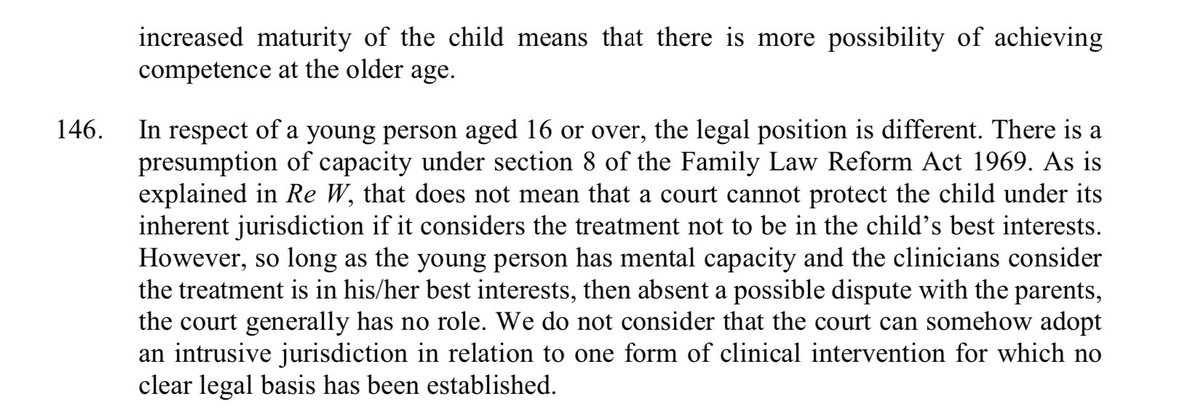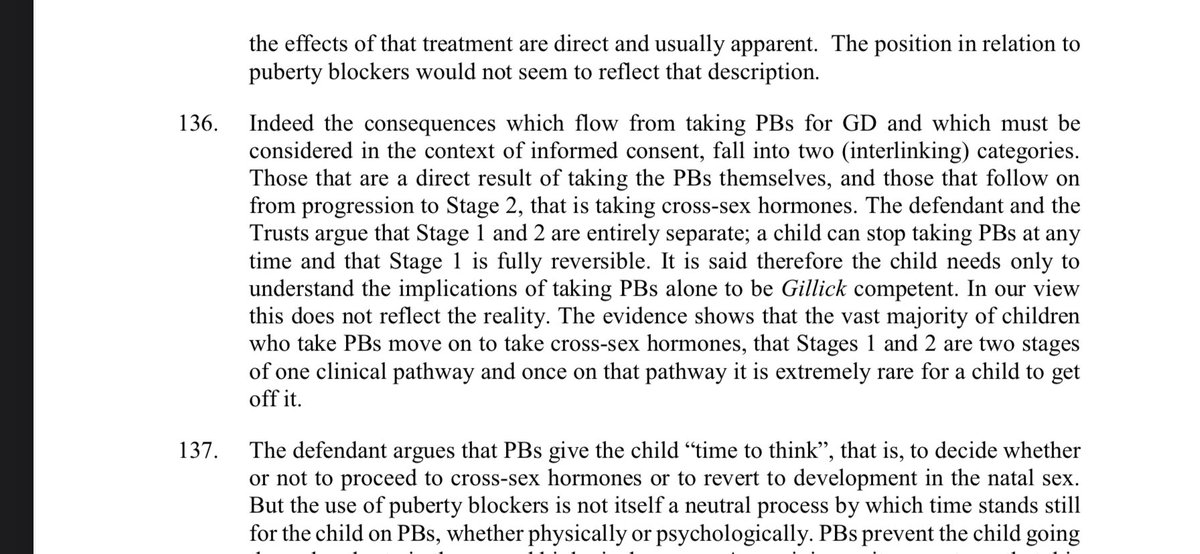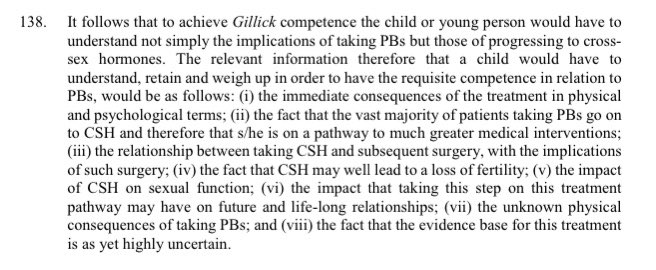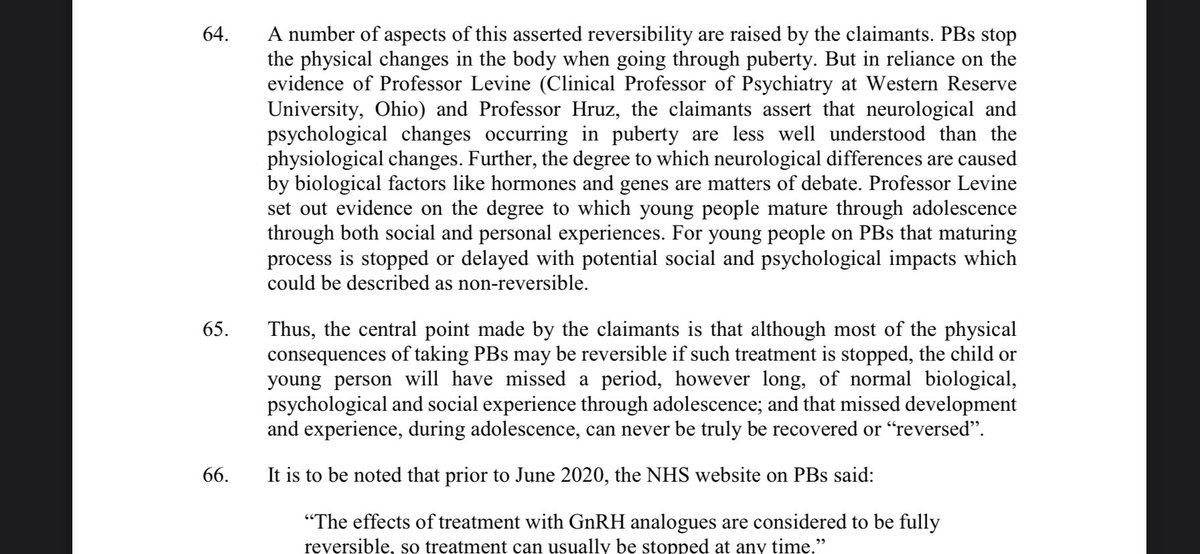I have read this now, it is a fascinating and important judgment. Well worth spending an evening reading, if you are interested in medical ethics and whatever your view on puberty blockers https://twitter.com/judiciaryuk/status/1333732359804489729
It’s actually a fairly narrow decision, though one which will impact trans children trying to access puberty blockers significantly (as it will make accessing them in the UK practically impossible for under 16s). It’s narrow because the court didn’t accept the primary argument...
... that puberty blockers can *never* be consented to by children, and also I think at centre of judgment was that the court was unimpressed by evidence of the effectiveness of PB (it used “surprising” three times to describe the absence of evidence which is  for a court...)..
for a court...)..
 for a court...)..
for a court...)..
... and the court was concerned by what it saw as the (under-researched) potential long term life-changing effects of PB. So in circumstances where the effectiveness was unproven and possible long term effect profound, and the fact that some long term...
... effects related to fertility and sex which children inherently find it difficult to understand, it decided that (especially young) children are unlikely to understand the true impact and therefore could not usually understand enough to consent. From a rights...
... perspective there were really two different ideas of autonomy circling each other: the autonomy of a child to make decisions for themselves *now*, versus the autonomy of a child to retain full life options in future (ie not make decisions now which will reduce options later).
I am not here saying the way in which the court approached the issue was entirely correct, I am certainly not on top of all the science. I think one of potential appeal point is the implication that Gillick competence requires knowledge not just of treatment 1 (PB) but also...
Treatment 2 (cross-sex hormones) and even treatment 3 (sex change surgery) because those are likely (but not inevitable) knock on consequences. This seems an almost impossible hurdle and raises all sorts of causation questions (what if proper consent reduces the likelihood...
... of those further interventions?) and generally seems to raise questions for medical consent generally.
Anyway, a very interesting judgment. Will be interested to see if it is appealed and if so what happens next
Anyway, a very interesting judgment. Will be interested to see if it is appealed and if so what happens next
Another issue which I think is on the edges of this judgment but not quite grappled with by the court (it would not be alone, it comes up in lots of other contexts) is whether children can think for themselves about complex issues given their stage of neurological development...
... That does go to the heart of the definition of “autonomy” for children and there is one reading of this judgment which reduces down the autonomy of children to make important decisions, even about their future, to almost nothing.

 Read on Twitter
Read on Twitter











